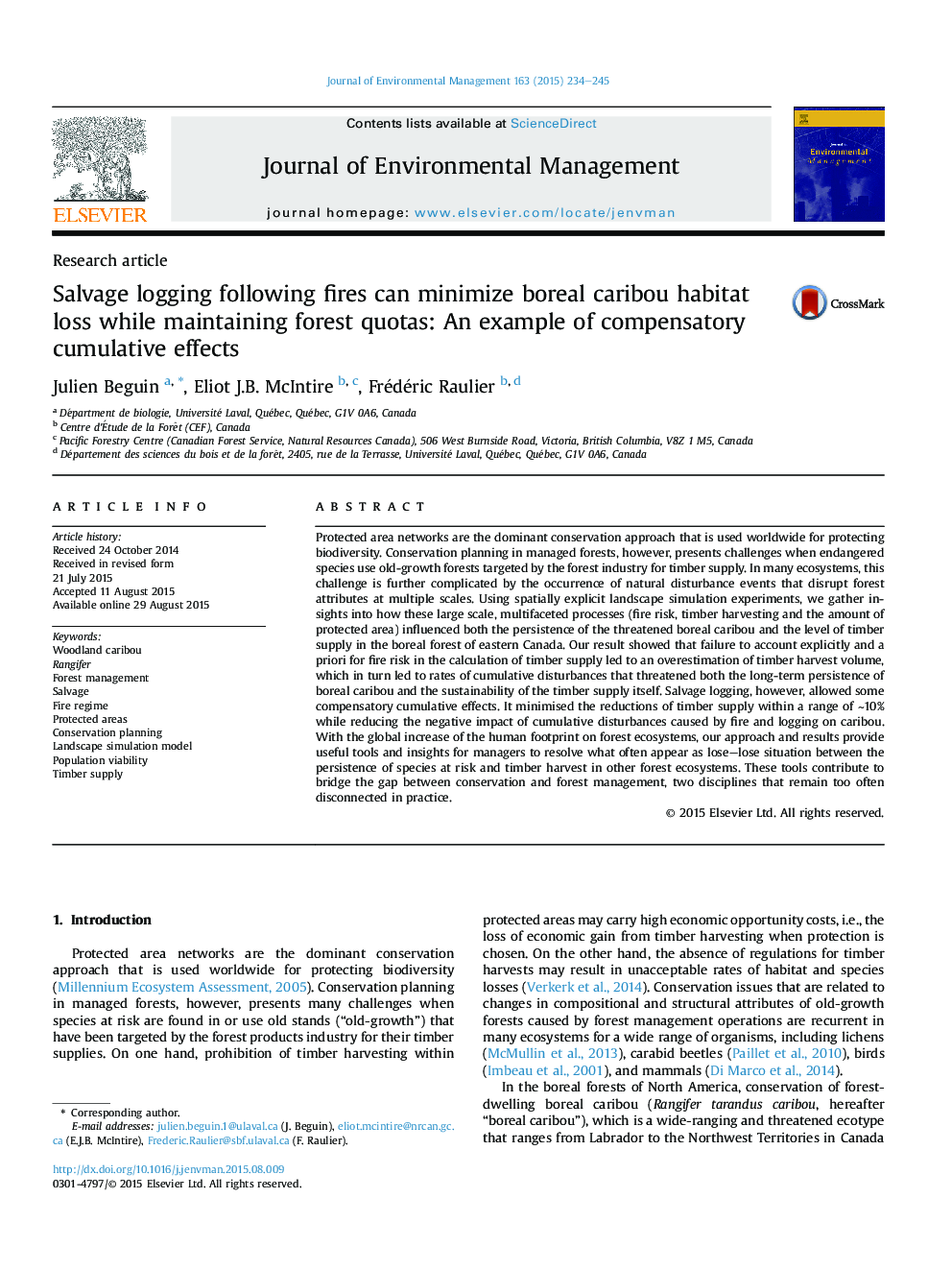| کد مقاله | کد نشریه | سال انتشار | مقاله انگلیسی | نسخه تمام متن |
|---|---|---|---|---|
| 1055531 | 1485249 | 2015 | 12 صفحه PDF | دانلود رایگان |
• Fire, logging, and protected areas interact spatially over boreal landscapes.
• We assessed how these interactions shape economy and conservation trade-offs.
• Timber supply and population viability analyses should incorporate for fire risk.
• Salvage logging can reduce cumulative effects of disturbances on boreal caribou.
• Conservation must account for interactions among human and natural disturbances.
Protected area networks are the dominant conservation approach that is used worldwide for protecting biodiversity. Conservation planning in managed forests, however, presents challenges when endangered species use old-growth forests targeted by the forest industry for timber supply. In many ecosystems, this challenge is further complicated by the occurrence of natural disturbance events that disrupt forest attributes at multiple scales. Using spatially explicit landscape simulation experiments, we gather insights into how these large scale, multifaceted processes (fire risk, timber harvesting and the amount of protected area) influenced both the persistence of the threatened boreal caribou and the level of timber supply in the boreal forest of eastern Canada. Our result showed that failure to account explicitly and a priori for fire risk in the calculation of timber supply led to an overestimation of timber harvest volume, which in turn led to rates of cumulative disturbances that threatened both the long-term persistence of boreal caribou and the sustainability of the timber supply itself. Salvage logging, however, allowed some compensatory cumulative effects. It minimised the reductions of timber supply within a range of ∼10% while reducing the negative impact of cumulative disturbances caused by fire and logging on caribou. With the global increase of the human footprint on forest ecosystems, our approach and results provide useful tools and insights for managers to resolve what often appear as lose–lose situation between the persistence of species at risk and timber harvest in other forest ecosystems. These tools contribute to bridge the gap between conservation and forest management, two disciplines that remain too often disconnected in practice.
Journal: Journal of Environmental Management - Volume 163, 1 November 2015, Pages 234–245
